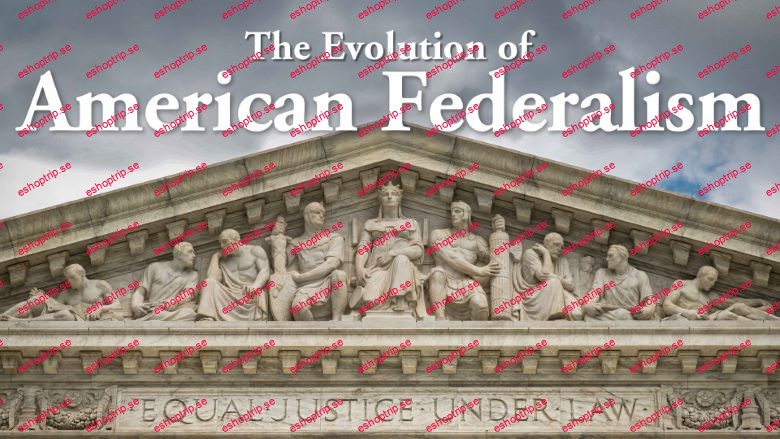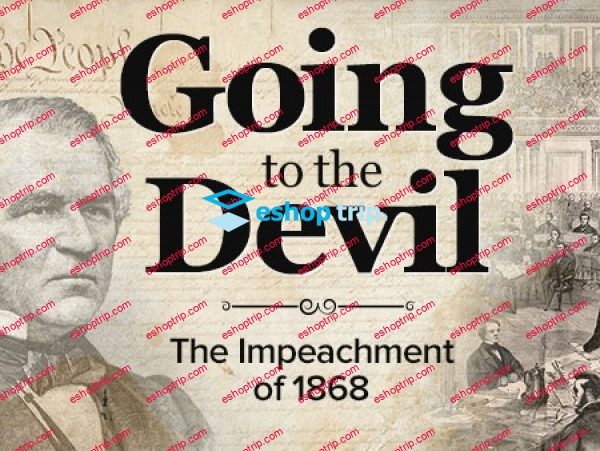.MP4, AVC, 1280×720, 30 fps | English, AAC, 2 Ch | 12h 28m | 10.4 GB
Lecturer: Joseph L. Hoffmann, J.D. Professor, Indiana University Maurer School of Law | Course No. 30670
In a documentary about the American Civil War, the historian Shelby Foote said that, as Americans, “our true genius is for compromise.” From 13 newly independent states ratifying a national constitution to the heated debates in the halls of Congress today, American politics is about negotiation over what our country is—and where we are going.
At the center of this political compromise is “federalism,” a concept referring to the balance of power between the federal and state governments. Where does state power end and federal power begin? What role should the national government play in our local lives? How do you secure a stable nation while also guarding against tyranny?
In these 24 insightful lectures, Professor Joseph L. Hoffmann of Indiana University traces the history of American federalism, from the nation’s founding through some of the most important debates and consequences in the domain of political theory, including:
- The emergence of our two-party political system;
- Civil rights and the limits of state power;
- The Commerce Clause, taxation, and the scope of federal regulation;
- Due process and equal protection;
- Balancing power during a pandemic; and more.
One key theme in this course is that political power constantly shifts as America grows and evolves. For example, voting rights meant something different in a sparsely populated agricultural society based on slavery. Today, federalism plays a key role in debates about gerrymandering, redistricting, voter ID laws, voting rights for ex-felons, and much more.
As The Evolution of American Federalism reveals, balance is at the heart of the American experiment. The framers of the Constitution understood freedom and self-determination as key to prosperity and happiness—and securing these required a unique approach to government. Despite occasional episodes of tension, confusion, and even chaos, federalism truly represents America’s greatest gift to the world of political theory.
Discover the Origins of Federalism
From its inception, federalism has been at the heart of American political discourse. We tend to lump the “Founding Fathers” into one homogenous group, but from the beginning of America, there has always been a tension between state and national sovereignty. Thomas Jefferson envisioned a decentralized nation of local control; whereas, John Adams and Alexander Hamilton argued for a much stronger central government.
Professor Hoffmann takes you into the debates over the Constitution and unpacks James Madison’s brilliant compromise, which divided sovereign powers between the states and the federal government to protect individual freedom. The Supreme Court decision in Marbury v. Madison enabled the federal judiciary to supervise this balance—a decision that reverberates even today.
Along with the Constitutional origins of federalism, you will explore the rise of two-party politics and trace the evolution of this system from the nullification crisis during the presidency of Andrew Jackson, through the Civil War and Reconstruction, to the New Deal and the Civil Rights Act. The parties today may not be called Federalists and Anti-Federalists, but the political push-pull from America’s founding has been a constant through-line.
As you will discover throughout this historical analysis, each staggering step of American history has clarified ambiguities not spelled out in the Constitution, while expanding opportunities for every American to enjoy the promise of life, liberty, and the pursuit of happiness.
Federalism in Practice: Examine Core Legal Tensions
Through engaging stories and legal analysis of landmark Supreme Court cases, Professor Hoffmann highlights the scope and limits of federal power, as defined in the Constitution and its amendments. Lecture topics include the Supremacy Clause, the Commerce Clause, the Establishment Clause, Due Process, Habeas Corpus, Plenary Powers, and more.
Negotiating the balance of federal and state power over the years has been difficult, even contentious. Professor Hoffmann walks you through a wide range of legal issues that affect our lives today:
- Interstate Commerce: Trade across state lines is governed by federal regulation and economic policy, and the boundaries on state authority have affected everything from mudflaps on eighteen-wheelers to taxation of online purchases.
- Citizenship and Equal Protection: In the wake of the Civil War, the 14th Amendment redefined the concept of federal citizenship, generating a host of new tensions around race and justice in America.
- Due Process: Federalism has been instrumental in shaping state criminal procedures and protecting individual rights, and it is the basis of privacy laws ranging from marriage to reproductive rights.
- Public Health and Safety: From terror attacks to pandemics to environmental regulations, the scope of federal versus state authority has a major impact on the daily well-being of American citizens.
Reflect on the Role of Federalism, Today and Beyond
Federalism may have begun as a way of uniting 13 former colonies into one coherent nation, but the system continues to pose new challenges for each generation. For example, voting in federal elections is still administered largely at the state level, but as the infamous Bush v. Gore case revealed, the system is far from clear on who has the authority to resolve disputes involving state laws, state courts, federal statutes, and more.
The Founders may not have anticipated “hanging chads” on ballots, and they certainly did not envision the evolving needs of a diverse nation with more than 300 million people. Is it constitutional for a health care law to “mandate” that everyone buys health insurance? What does the 14th Amendment imply about interracial marriage (Loving v. Virginia)? Or gay marriage (Obergefell v. Hodges)? Or reproductive rights (Roe v. Wade and Dobbs v. Jackson Women’s Health Organization)?
Immigration, gun control, climate change: Our federalist system provides the legal framework for debating these important issues, as well as a path for measured progress. The Evolution of American Federalism offers a clear; compelling; and, ultimately, optimistic view of American politics—and a welcome story of balance in a time of turmoil.










